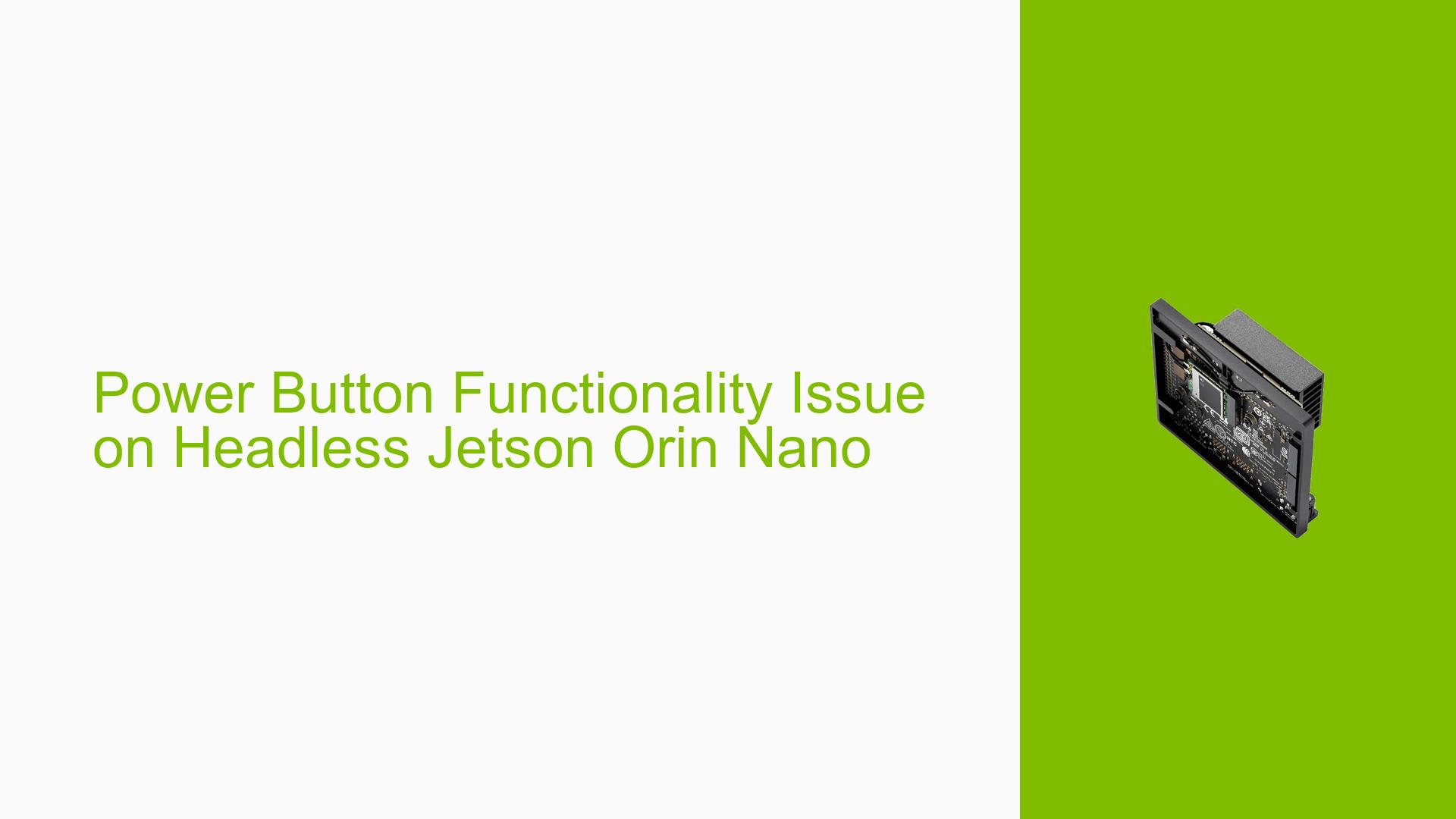Power Button Functionality Issue on Headless Jetson Orin Nano
Issue Overview
The Jetson Orin Nano, when used in a headless configuration (without a monitor, keyboard, or mouse), experiences inconsistent power button functionality. Specifically:
- The device powers on correctly with a button press
- The power button fails to initiate a clean shutdown when no monitor is connected
- Prolonged button press results in an abrupt power cut, potentially causing data loss or corruption
- The power button functions as expected when a monitor is connected
This issue significantly impacts the usability of the Jetson Orin Nano in robotics and edge computing applications where headless operation is common.
Possible Causes
-
GUI-Dependent Power Management: The power button functionality may be tied to the graphical user interface (GUI) login, similar to other hardware functions in Ubuntu-based systems.
-
User Permissions: The power button’s shutdown function might be associated with the user logged into the GUI, reverting to a different behavior when no user is logged in.
-
Ubuntu Version Differences: The issue appears to be related to the Ubuntu version used in the latest JetPack (20.04), as it worked on an older version (18.04).
-
NVIDIA-Specific Configuration: There might be NVIDIA-specific settings or drivers that affect power button behavior in headless mode.
-
Hardware Signal Interpretation: The system might interpret the power button signal differently without a monitor connected, possibly due to power state detection mechanisms.
Troubleshooting Steps, Solutions & Fixes
-
Use a Dummy Monitor
- As a workaround, connect a dummy monitor to the Jetson Orin Nano.
- This solution, while not ideal, has been reported to work effectively.
-
SSH Shutdown Method
- If network access is available, use SSH to connect to the device.
- Execute the following command for a clean shutdown:
sudo shutdown -h now - Note: This method requires manual intervention and doesn’t utilize the physical power button.
-
Investigate Ubuntu Power Management Settings
- Research and modify Ubuntu 20.04 power management configurations.
- Look for settings related to ACPI (Advanced Configuration and Power Interface) events.
- Explore the possibility of creating custom ACPI event handlers for the power button.
-
Check for NVIDIA-Specific Power Management Tools
- Investigate if NVIDIA provides any command-line tools or configuration options for power management on Jetson devices.
- Look for Jetson-specific documentation on headless operation and power management.
-
Explore systemd Power Management
- Ubuntu 20.04 uses systemd, which includes power management capabilities.
- Research how to configure systemd to handle power button events in headless mode.
- Example command to check current power button behavior:
systemctl status systemd-logind
-
Custom Script for Power Button Events
- Create a script that listens for power button events and initiates a clean shutdown.
- Use tools like
acpidorsystemdto capture and handle power button presses.
-
Kernel Parameter Adjustment
- Investigate kernel parameters related to ACPI and power management.
- Modify
/etc/default/gruband update GRUB if necessary.
-
Firmware Update
- Check for any available firmware updates for the Jetson Orin Nano that might address this issue.
- Keep the JetPack software up to date.
-
Community Support
- Engage with the NVIDIA Developer forums for Jetson-specific advice.
- Consider reporting this issue to NVIDIA as a potential bug or feature request for headless operation improvements.
-
Hardware Verification
- Ensure that the power button is correctly connected and the jumper is properly set according to Jetson Orin Nano documentation.
- Test the power button functionality with different monitors to rule out any hardware-specific issues.
